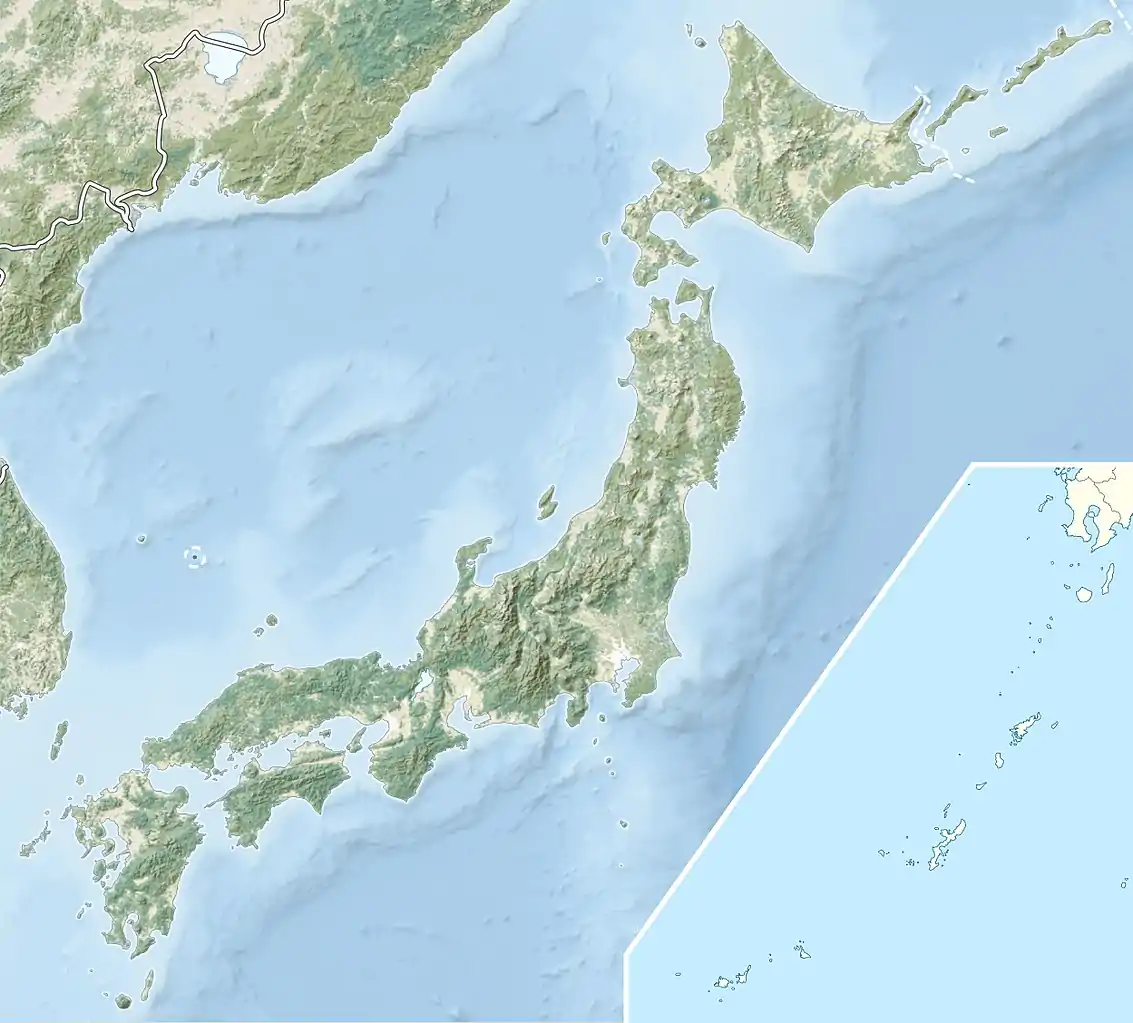Mount Shirouma
Mt. Shirouma (白馬岳, Shirouma-dake) is a peak in the Hida Mountains range of the Japanese Alps, located in Nagano Prefecture and Toyama Prefecture, central Honshu, Japan.
| Mount Shirouma | |
|---|---|
| 白馬岳 | |
 Mount Shirouma and the Mountain hut | |
| Highest point | |
| Elevation | 2,932.24 m (9,620.2 ft) [1] |
| Listing | 100 Famous Japanese Mountains List of mountains in Japan |
| Coordinates | 36°45′31″N 137°45′31″E [2] |
| Naming | |
| Language of name | Japanese |
| Geography | |
 Mount Shirouma Location of Mount Shirouma in Japan. | |
| Location | Hakuba, Nagano Prefecture and Kurobe, Toyama, Toyama Prefecture, Japan |
| Parent range | Hida Mountains |
| Topo map | Geospatial Information Authority 25000:1 白馬岳[1] 50000:1 白馬岳 |
Geography
Mount Shirouma is the 26th-tallest mountain in Japan. At 2,932 metres (9,619 ft), it is the highest peak in the Hakuba section of the Hida Mountains, and one of the top "to climb" peaks for Japanese hikers. It is also one of the few peaks in Japan with year-round snow fields (Firn), in the Shirouma Dai Sekkei, or Shirouma deep-snow gorge (白馬大雪渓).
It is located within the Chūbu-Sangaku National Park.[3] Mount Shirouma is one of the landmark 100 Famous Japanese Mountains.
Alpine plants are also abundant on Shirouma in the summer.[4]
Gallery
 Mt. Shirouma and Mt. Korenge in winter, seen from Hakuba, Nagano
Mt. Shirouma and Mt. Korenge in winter, seen from Hakuba, Nagano Shirouma-ōike (Shirouma Big Pond), (白馬大池) seen from Mt. Korenge
Shirouma-ōike (Shirouma Big Pond), (白馬大池) seen from Mt. Korenge Mt. Shirouma and Mt. Korenge in autumn, seen from Mt. Shiroumayari
Mt. Shirouma and Mt. Korenge in autumn, seen from Mt. Shiroumayari Mt. Shakushi and Mt. Shiroumayari, seen from Mt. Shirouma
Mt. Shakushi and Mt. Shiroumayari, seen from Mt. Shirouma
References
- "Map inspection service of 25000:1 白馬岳(富山)" (in Japanese). Geospatial Information Authority of Japan. Retrieved December 16, 2010.
- "Mountains altitude list in Japan(Nagano)" (in Japanese). Geospatial Information Authority of Japan. Retrieved December 16, 2010.
- "Chūbu-Sangaku National Park". Ministry of the Environment (Japan). Archived from the original on February 27, 2012. Retrieved December 16, 2010.
- Sumie Tanaka (1995). New 100 Famous Mountains with Flower(新・花の百名山) (in Japanese). Bunsyunbunko. ISBN 4-16-731304-9.
This article is issued from Wikipedia. The text is licensed under Creative Commons - Attribution - Sharealike. Additional terms may apply for the media files.